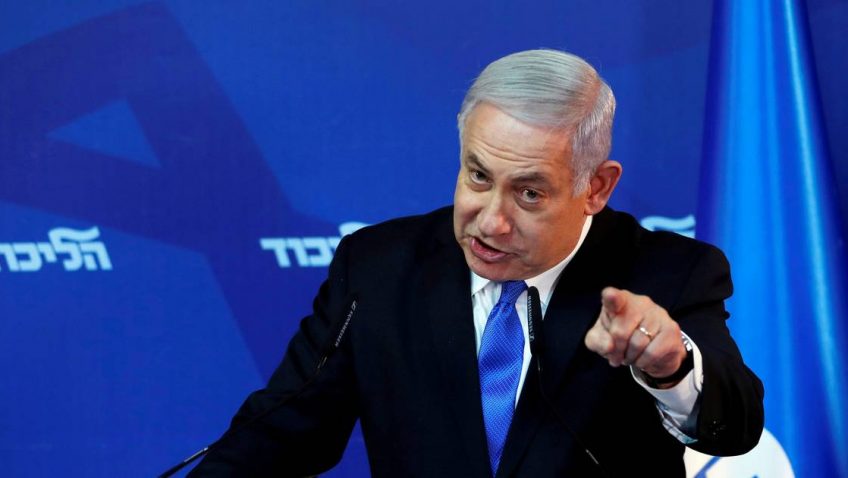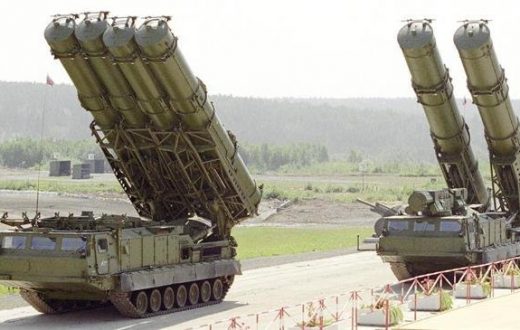In February, Attorney General Avichai Mandelblit announced that Benjamin Netanyahu will be indicted on accounts of fraud and breach of trust, casting a new light on the election coming up on April 9th in Israel. Despite the news, it is hard to believe that such an event might make a drastic difference in future Israeli policy, particularly for what concerns the geopolitical arrangements so far defended by Bibi. If on one hand the judiciary’s threat provides grounds for further gains among the opposition forces, on the other hand Likud’s Chairman has strengthened his influence in the region to the point of no-return. No future candidate can truly propose a new approach without dealing with Netanyahu’s 10-year legacy, de facto focing any newcomer to play the – involuntary – role of Bibi’s heir.
As a result, the investigation may not prompt significant revolutions, for these political apples will not fall far from the Netanyahu tree. Benny Gantz, who is at the moment reputed to be the closest replacement for the outgoing Prime Minister, is himself an executor of Netanyahu’s design despite his leftist tendencies. He was a leader in the 2014 Operation Brother’s Keeper, during which 350 Palestinians were held prisoner following the murder or three West Bank Israeli teenagers by alleged Hamas members. His defence of a unified Israeli capital in Jerusalem and the settlements created under Bibi’s tenure, which has also seen the 2017 retroactive legalisation of seized lands, has been justified in terms of “Israeli security” vis-à-vis Hamas.
But this principle is not limited to the domestic question only: it is instead a key concept linking the PM and his potential successor in many ways, especially in regards to the multi-sided relationship with Teheran. Netanyahu has been vocal about his disrespect of the Joint Comprehensive Plan of Action, throwing accusations in 2018 of a nuclear enrichment plan being underway in Iran for the purpose of future regional conflict. Gantz has not at all changed the tone, defining Iran as “maleficent” in an intervention at the Munich Security Conference earlier this year. It is nothing too distant from the relentless support for the Begin Doctrine, of which Netanyahu has been a defender, which sees Israel taking a harsh approach to WMD by using preventive strikes as a routine measure.
How would that play out in the future? Gantz’s “Israel-or-no-one” mantra will likely imply a painful reinforcements of Bibi’s achievements, even though his electoral campaign may accuse the adversary of ruining the country for his personal ventures. The truth is that Netanyahu’s superman status has been even more consolidated by Donald Trump’s rise and will continue to affect Israeli geopolitics for even longer. Last week, the United States recognised Israel’s annexation of the Golan Heights, a controversy keeping the region hostage since 1981. The formal acceptance is an American gift for a country that perceives the territory as an operational haven for Iran-backed militias to create military networks. At the same time, it has sparked a televised reply by Hezbollah leader Hassan Nasrallah, who called for “resistance” and echoed Syria’s request for a UN Security Council meeting to discuss sovereignty infringement.
Potentially speaking, the outrage confirms Israel’s idea that a buffer zone in an Iran-friendly state is only a blessing, in line with Israeli bombings on key sectors of Syrian cities relying on Iranian supplies. Not too long ago, Gantz accused Hezbollah of possessing facilities for missile production in the suburbs of Beirut: if he were to become the prime minister his rhetoric would provide continuity in Israeli targets. It would further support the round of attacks against a group of enemies scattered across a moon-shaped ‘wall’ on all borders. In this context, Gantz’s innovation might consist in updating the means through which to pursue this regional strategy rather than any significant change of direction. No matter whether this will happen through a more intense series of military operations in the Syrian scenario, or through extensive diplomatic cooperation with President Trump, Netanyahu’s past efforts will provide the footprint for it.
One element of novelty, however, may be finally appropriated by Gantz. In recent months, despite the lack of official relations, Israel seems to embrace the possibility of approaching Saudi Arabia in the common struggle against Teheran. Interviews with key staff at the Israeli Defence Force and the national diplomatic service suggest there has been covert sharing of intelligence between the two countries to tackle Iranian interference. And Netanyahu publicly defended Mohammad bin Salman from the Khashoggi affair storm, advocating for the stability of the Kingdom all the while calling for an inquiry into the murder. Those may be small details, but they hint at an Israeli willingness to create a bloc of the “little devil” against the Islamic enemy.
If Gantz wants to, Israeli security can go through a new partnership based on shared interests, in a grand realpolitik scheme that could seal a deal against Shiite adversaries. It is a challenge that could revolutionise the country’s approach to its own survival as much as the survival of its neighbours. In any case, the threat of a Saudi move towards civil nuclear power might get into the way of such a project, since the Israeli primacy in that sector and the broader regional design would be challenged.
Will Gantz move on from Netanyahu’s legacy and create his own? It will all depend on his ability to shift the focus and be innovative. Nothing short of an absolute nightmare.








